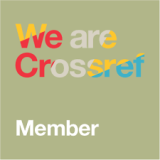Peran Penalaran Moral dalam Perspektif Islam Terhadap Whistleblowing
Abstract
Penelitian ini mengeksplorasi peran penalaran moral dalam konteks pengaruh skema insentif terhadap perilaku whistleblowing. Whistleblowing, sebagai tindakan melaporkan pelanggaran etika atau hukum di tempat kerja, telah menjadi fokus perhatian dalam bidang etika bisnis dan manajemen. Skema insentif, termasuk insentif finansial dan non-finansial, telah diidentifikasi sebagai faktor yang mempengaruhi keputusan individu untuk melaporkan perilaku tidak etis. Namun, penting untuk memahami bahwa penalaran moral individu juga memainkan peran kunci dalam proses pengambilan keputusan whistleblowing. Penelitian ini mengevaluasi literatur terkait untuk mengungkap bagaimana penalaran moral memengaruhi hubungan antara skema insentif dan whistleblowing. Penelitian ini menemukan bahwa individu dengan penalaran moral yang tinggi cenderung lebih mungkin melaporkan pelanggaran, bahkan dalam ketiadaan insentif eksternal. Namun, insentif dapat memperkuat atau melemahkan dampak penalaran moral terhadap whistleblowing. Implikasi praktis dari kajian ini termasuk pentingnya organisasi dalam memperhatikan aspek penalaran moral dalam merancang skema insentif untuk mendorong perilaku whistleblowing yang etis dan bertanggung jawab.
Keywords
Full Text:
PDFReferences
Alawiyah, I. (2021). Perceived risk dalam transaksi e-commerce perspektif etika bisnis islam dan social culture. An-Nisbah Jurnal Ekonomi Syariah, 8(1), 226-246. https://doi.org/10.21274/an.v8i1.4070
Ariely, D., Bracha, A., & Meier, S. (2009). Doing Good or Doing Well? Image Motivation and Monetary Incentives in Behaving Prosocially. American Economic Review, 99(1), 544-55.
Bénabou, R., & Tirole, J. (2006). Incentives and Prosocial Behavior. The American Economic Review, 96(5), 1652-1678.
Brief, A. P., & Motowidlo, S. J. (1986). Prosocial organizational behaviors. Academy of Management Review, 11(4), 710-725.
Brooks, R. (2018). The financial scandal no one is talking about. The Guardian. Available at: https://www.theguardian.com/news/2018/may/29/the-financial-scandal-no-one-is-talking-about-big-four-accountancy-firms.
Ceva, E., & Bocchiola, M. (2018). Personal trust, public accountability, and the justification of whistleblowing. Journal of Political Philosophy, 27(2), 187-206.
Cheng, J., Bai, H., & Yang, X. (2019). Ethical Leadership and Internal Whistleblowing: A Medi¬ated Moderation Model. Journal of Business Ethics, 155(1), 115-130. doi: 10.1007/s10551- 017-3517-3.
Choli, I. (2019). Pembentukan karakter melalui pendidikan islam. Tahdzib Al-Akhlaq Jurnal Pendidikan Islam, 2(2), 35-52. https://doi.org/10.34005/tahdzib.v2i2.511
Davis, M. (1996). Some paradoxes of whistleblowing. Business and Professional Ethics Journal. 15(1), 3-19.
Dungan, J. A., Young, L., & Waytz, A. (2019). The power of moral concerns in predicting whistleblowing decisions. Journal of Experimental Social Psychology. 85, 1-12 Doi: 10.1016/j. jesp.2019.103848.
Eisenberg, N., & Miller, P. A. (1987). The relation of empathy to prosocial and related behaviors. Psychological Bulletin, 101(1), 91-119.
Kazmi, A. (2020). Islamic business ethics., 1-5. https://doi.org/10.1007/978-3-030-02006-4_86-1
Kohlberg, L. (1971). Stages of moral development as a basis for moral education', in Beck, C.M., Crittenden, B.S. & Sullivan, E.V. (eds.) Moral Education: Interdisciplinary Approaches. New York: Newman Press.
Kohlberg, L., & Hersh, R. H. (1977). Moral Development: A Review of the Theory. Theory Into Practice, 16(2), 53-59.
Miceli, M. P. (2004). Whistle-Blowing Research and the Insider: Lessons Learned and Yet to be Learned. Journal of Management Inquiry 13, 364-366.
Miceli, M. P., & Near, J. P. (1985). Characteristics of organizational climate and perceived wrong¬doing associated with whistle-blowing decisions. Personnel Psychology, 38(3), 525-544.
Miceli, M. P., & Near, J. P. (1992). Blowing the whistle: The organizational and legal implications for com¬panies and employees. New York: Lexington Books.
Miceli, M. P., Near, J. P., & Dworkin, T. M. (2008). Whistle-blowing in organizations. New York: Routledge.
Near, J. P., & Miceli, M. P. (1995). Effective-whistle blowing. Academy of Management Review, 20(3), 679-708.
Near, J. P., & Miceli, M. P. (2005). Standing Up or Standing By: What Predicts Blowing the Whis¬tle on Organizational Wrongdoing. Research in Personnel and Human Resource Management 24, University of Illinois, USA.
Puspitasari, L. (2016). Etika bisnis islam: teori dan aplikasi pada perusahaan manufaktur. El Muhasaba Jurnal Akuntansi (E-Journal), 7(2), 113. https://doi.org/10.18860/em.v7i2.3884
Ramadhany, N., Aravik, H., & Choirunnisak, C. (2023). Analisis penerapan prinsip etika bisnis islam terhadap usaha mikro kecil dan menengah (umkm) pada rozza bakery palembang. Jurnal Ilmiah Mahasiswa Perbankan Syariah (Jimpa), 3(1), 13-26. https://doi.org/10.36908/jimpa.v3i1.115
Rafki, M. and Parakkasi, I. (2022). Peran etika bisnis islam dalam meningkatkan kepercayaan dan repeat order konsumen. Journal of Islamic Economics and Finance Studies, 3(2), 121. https://doi.org/10.47700/jiefes.v3i2.4868
Rest, J. (1979). Development in Judging Moral Issues. Minneapolis: University of Minnesota Press.
Rest, J. (1983). ‘Morality', in P. H. Mussen (ed.). Handbook of Child Psychology (Vol. III edited by J. Flavell and E. Markman) (Wiley, New York).
Rest, J., Narvaez, D., Bebeau, M. J., & Thoma, S. (1999). Postconventional Moral Thinking: A Neo-Kohlbergian Approach. Mahwah: Lawrence Erlbaum Associates.
Setyawan, H. and Wahyudi, A. (2022). Tinjauan prinsip-prinsip etika bisnis islam dalam praktik pemasaran bawang merah di pasar malon, sukorejo, ponorogo. Niqosiya Journal of Economics and Business Research, 2(2), 305-332. https://doi.org/10.21154/niqosiya.v2i2.989
Weber, J. (1991). Adapting Kohlberg to enhance the assessment of managers' moral reasoning. Business Ethics Quarterly, 1(3), 293-318.
Weber, J., & McGivern, E. (2010). A New Methodological Approach for Studying Moral Reason¬ing among Managers in Business Settings. Journal of Business Ethics, 92(1), 149-166.
Xu, Y., & Ziegenfuss, D. E. (2008). Reward Systems, Moral Reasoning, and Internal Auditors' Reporting Wrongdoing. Journal of Business and Psychology, 22(4), 323-331.
DOI: http://dx.doi.org/10.30829/ajei.v9i1.20141
Refbacks
- There are currently no refbacks.
Copyright (c) 2024 Asmaul - Husna

This work is licensed under a Creative Commons Attribution-ShareAlike 4.0 International License.





3.jpg)






